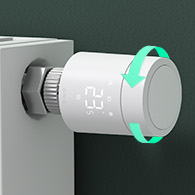The scenario I mentioned was to try and get you to understand that we can't always do the very best job, because some customers don't want to, or can't pay for cosmetic work which is not actually required.
This does NOT make an installation non compliant.
Apart from not being good workmanship.
Even it it was requested, it is still not good.
That's entirely irellevant. If the job was specced for surface cable by the client it would be compliant.
Apart from not being good workmanship.
Even it it was requested, it is still not good.
We don't know the spec of the OPs client when the work was ordered, so by default the work is compliant.
Apart from not being good workmanship.
Even it it was specced, it is still not good.
The point of an EICR is to assess electrical safety, and compliance with the regs. The OPs installation passes both of these.
I have never suggested that it fails to comply with any regulations except 314.1.1
Can you try and rewrite that into comprehensible English?
Sorry.
You have taken an example of an environment where a particular installation technique was used, maybe because it was mandated by the designer, maybe because it was mandated by the regulations, and tried to make out that because in that environment you would describe it as good, then if we are to have a concept of good workmanship we must therefore have to use that technique everywhere.
Indeed.
It also shows that your argument that I must be wrong because as has been pointed out to me several times by several different posters, there's nothing actually wrong with the installation, so it can't be anything but good workmanship is fatuous. There are also several examples of people saying that it is not good workmanship.
I've done jobs with cables clipped along a wall, I've done flush T&E, surface steel containment, and flush steel containment. All good workmanship. (safe, compliant, customer happy, contractor happy)
Not necessarily all good.
You're also failing to answer simple questions I've asked you. Such as this:
I work on commercial jobs where all the wiring is LSF cable in steel containment. Is that good workmanship? I'd say so. Does that mean that anything less than LSF in steel is not good workmanship, and therefore is non compliant with BS7671?
If you went to a restaurant for a meal, and the food wasn't so bad you couldn't eat it, it didn't make you ill, the service was acceptable, but there was nothing actually enjoyable about any part of the experience, would that be all you needed to say to your friends "you should go there, the food is good"?
Still haven't answered it have you.
Nor have you answered my question about the restaurant meal.
Regarding the steel containment - earlier you claimed that you've installed cables clipped to a wall, and that that was good workmanship.
Would you claim, therefore, that cables clipped to a wall would be good workmanship in all cases? Or might you claim that different environments might require different installation techniques?
I did point out that it would be entirely possible to take your spec for LSF cables, and steel containment, and construct it so that it complied with all the applicable regulations except 134.1.1.
But then, no doubt, you'd regard runs of conduit or trunking which were not parallel when they should be, with malformed bends, wonky double sets etc as good workmanship.
Yes. I can't stand there and say he did an unsafe job, or a bad job can I, because he didn't.
Apparently not.
Apparently you have abysmally low standards.
A pass is a pass. Good lad.
You haven't answered my question.
If he only scraped a pass, e.g. straight G's in GCSE,
would you say "he got good results"?
But if it was done properly, that's good workmanship, so according to you, anything less is not acceptable. Should we ban twin and earth, and mandate steel on every job?
See above, and stop pretending that you are so stupid, and so unable to follow what I'm saying (even if you disagree) that you think the logical conclusion of my argument is that because a particular wiring method is needed in some instances it must be needed everywhere.
Edited to correct some malformed quotes.

